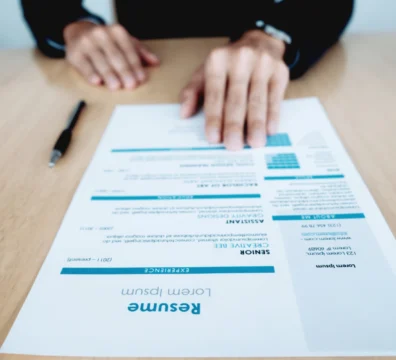Transmission Engineering is a type of Electrical Engineering that has its major application in the electrical power industries. As the transmission engineer job description suggests, you are supposed to manage transmission line projects and create cost-effective designs. You are responsible for designing, developing, and testing various electrical devices and equipment.
Why are transmission engineers an integral part of a project? Without them, we would be unable to transfer electrical power from one point to another effectively. Thus, every time we walk or drive past transmission towers and lines that connect them, we are looking at over a century’s worth of innovation and observing cables that stretch across countries.
The Transmission Engineer job description entails designing and optimizing transmission systems while ensuring adherence to industry standards, with opportunities available through staff outsourcing companies for businesses seeking specialized expertise without the burden of full-time hires.
If you aspire to become a transmission engineer, we have good news! Let’s read more about BO transmission engineer roles and responsibilities.
What are the Different Kinds of Transmission Engineers?
As we discussed, transmission engineering is a part of electrical engineering and almost similar to it. However, transmission engineers are known by several different titles, depending on which sector you work in and your roles. Broadly, there are two different kinds of transmission engineering jobs.
- Transmission Planning Engineers
These are electrical engineers responsible for designing electrical transmission systems. These engineers identify the number of electrical substations needed to properly transmit the precise amount of energy to a given number of clients. In some cases, transmission planning engineers also study existing power transmission systems and determine how they can be extended, testing transmission equipment and power lines to ensure they perform well under given conditions.
- Transmission Design Engineers
Transmission design engineers are usually hired in the wind-power generation sector. Sometimes they are also called wind-energy engineers. These engineers design and test wind turbines and the electrical parts associated with them. The transmission engineer job description for these engineers includes planning out the layout of wind farms, estimating wind speed direction, and determining optimal locations for the placement of these wind farms.
What is Included in a Transmission Engineer Job Description?
A transmission line engineer’s responsibilities include planning transmission lines and supervising their construction. On specific projects, you are also required to assume the role of a project engineer or project manager, which entails controlling every stage of a project from planning to execution.
Some aspects of a transmission engineer job description include understanding a client’s demands and evaluating the potential usage of high voltage direct current (HVDC) and Flexible Alternating Current Transmission Systems (FACTS) to improve power networks’ dependability, controllability, and safety.
Apart from the more technical aspects, you will be expected to interact with clients and contractors and work with permitting authorities and regulatory organisations as an engineer. Within your organisation, you will need to collaborate in interdepartmental meetings, coordinate internally with other departments, and evaluate the work of junior engineers and technicians.
Transmission engineer responsibilities
A BO transmission engineer’s roles and duties include, but are not limited to:
- Perform feasibility and planning research
- Design and planning for the Transmission Networks, wired (Fibre) and wireless (PtP and PtmP)
- Manage Site Build Programme Activities by performing MSV, assenting site drawings, negotiating nominated/candidate sites within TX Planning Tools, and ensuring good TX records for Site Build Programme
- Design approval and Fibre LL request for LTE and Hub Sites
- Transmission design and planning for MNO networks and specific B2B customer requirements
- Detail strategy planning and project cost estimates, including materials and construction
- Mentoring junior technicians and engineers
- Conducting fieldwork studies during construction projects
- Preparing construction plans, material specifications, and scope documents for contracts
- Preparing weekly transmission network utilization and Site Build Programme reports
- Handling multiple projects and making detailed design packages following appropriate engineering design standards and industry safety codes
- Delivering technical leadership and industry or corporate-level expertise in the respective field.
What are the Qualifications and Skills Required on a Transmission Engineer Resume?
Suppose you aspire to become a transmission engineer. In that case, you must have a bachelor of science degree or certification in the relevant field, which typically takes five or six years to earn. Organisations and employers usually seek university graduates certified by the Accreditation Board for Engineering and Technology (ABET).
A master’s degree in the same or related field can open up additional opportunities to work in specialised engineering sectors. Besides a degree, a transmission engineer’s resume should include the following technical and soft skills.
Technical/Hard Skills
- Knowledge of firmware and schematic capture functions
- Fluency in programming languages and software
- Debugging skills
- Experience with wireless technology
- Expertise in 3G, 4G, and 5G networks
- Knowledge of Ethernet, IP/MPLS, VPN, and BGP
- Working understanding of Ethernet Standard(VLAN, ERPS, LAG) and Ethernet Service Types(E-Line and E-LAN)
- Past experience in providing Transmission Solutions for Site Build Programme
Interpersonal/Soft Skills
- Leadership and people management skills
- A team player with excellent interpersonal skills such as communication and self-confidence
- The ability to communicate with and build cross-departmental professional relationships
- Hard-working, enthusiastic, and committed.
- Curious about new emerging technologies
- Decision-making skills
- Problem-solving skills and logical thinking
- Creative and innovative thinking
Also Read : Sales Team Leader Roles And Responsibilities
Why Should You Become a Transmission Engineer?
Due to market changes, the dependability and stability of the electrical grid have been questioned recently. The emerging technical developments and a growing emphasis on sustainable renewable energy worldwide have led to a massive demand for transmission engineers. As a result, there are many opportunities for aspiring transmission line engineers to make a significant impact and propel their careers.
There are several reasons why being an electrical engineer during this time might be an excellent career decision. There is a huge demand for transmission engineers, whether in the clean power industry, in an engineering, procurement, and construction (EPC) consulting business, or in other related industries that depend on electric grids. The other important factor for becoming a transmission engineer is this position’s lucrative salary. Let’s look at the average salary mentioned in a transmission engineer job description in the GCC.
BO Transmission Engineer salary across GCC countries
Here are the different salary structures of transmission engineers across different countries.
- The Kingdom of Bahrain: The estimated total salary of a transmission engineer is 35,862 Bahraini Dinars per year.
- The United Arab Emirates: The average salary of a transmission engineer in the United Arab Emirates is 36,725 AED per year.
- The Sultanate of Oman: The average salary of a transmission engineer in the Sultanate of Oman is 640.274 Omani Rials (OMR) per year.
- The Republic of Iraq: A person working as a Transmission Engineer in Iraq earns around 1,860,000 IQD per month. The salaries range between 855,000 IQD (lowest) to 2,950,000 IQD (highest).
Also Read : Performance Engineer Job Description
How can 6 Pence Help You Find Transmission Engineer Jobs?
This was a detailed transmission engineer job description. Note that to secure a job as a transmission engineer, you should at least have a bachelor’s degree in a related field.
If you are an aspiring transmission engineer looking for job opportunities, check out 6 Pence. We are a leading recruitment agency in the Kingdom of Bahrain, the Sultanate of Oman, the Republic of Iraq, and Dubai. We can help you find high-paying transmission engineer jobs.
We work with both public and private sector organisations and help with legal paperwork and work visas for international hires. You can follow our social media channels to learn about the latest vacancies. Drop your CVs with us today by visiting our careers section page. You can also follow us on our social channels to keep updated with the latest vacancies and important job-related tips.
Frequently Asked Questions
What is the role of a transmission engineer?
A transmission engineer’s role includes evaluating transmission feasibility and interconnected standards, system impact and facility research, and testing new electrical parts of wind turbine designs. Their duties can also include working on and supervising transmission or distribution systems.
How do you write engineering skills on a resume?
Engineering skills on a resume should focus on hard skills based on specific tasks and processes, for instance, the use of software, tools, and equipment. However, it should also include soft skills such as decision-making, problem-solving, communication, working under pressure, being a team player, attention to detail, etc. By highlighting these specific abilities, you can land the job you want.




































































































